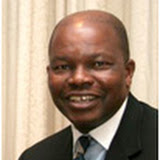
| Networking Forum with Mr. Stanley Subramoney, Joint Deputy CEO and Executive Committee member of Pricewaterhouse Coopers & Director of the NEPAD Business Foundation | |
| Proudly sponsored by Africa to 2015 and beyond! Download the presentation (PPT, 2.3mb)Africa is at a crossroads, with the pressures of change blowing stronger. Future failures will be states that cannot change due to entrenched dictatorship, command driven economies or corrupt regimes. African leaders need to invest in education in their countries so citizens can become competent and globally competitive. The New Partnership for Africa’s development (NEPAD) and the Commission for Africa are aimed at bringing hope and vision to the African continent. Central to the African Union (AU) and the Nepad programmes is the importance of promoting good governance, peace and security and economic development. Mr. Stanley Subramoney will be the guest speaker at this Networking Forum and will be addressing guests regarding the future of Africa to 2015 and Beyond. | |



